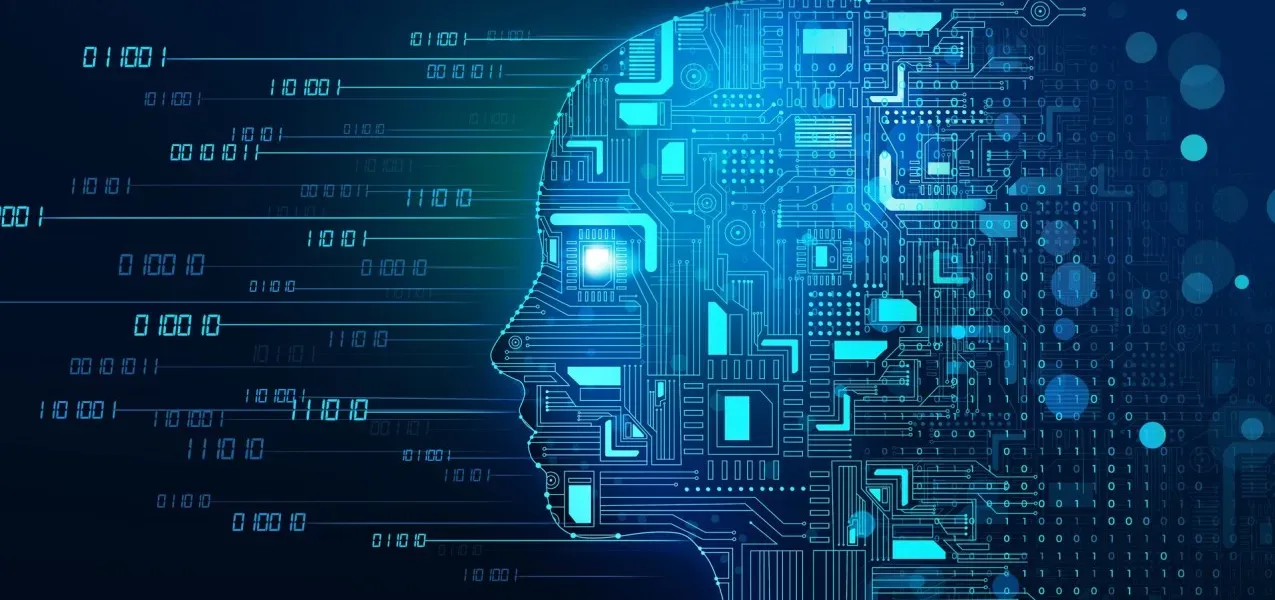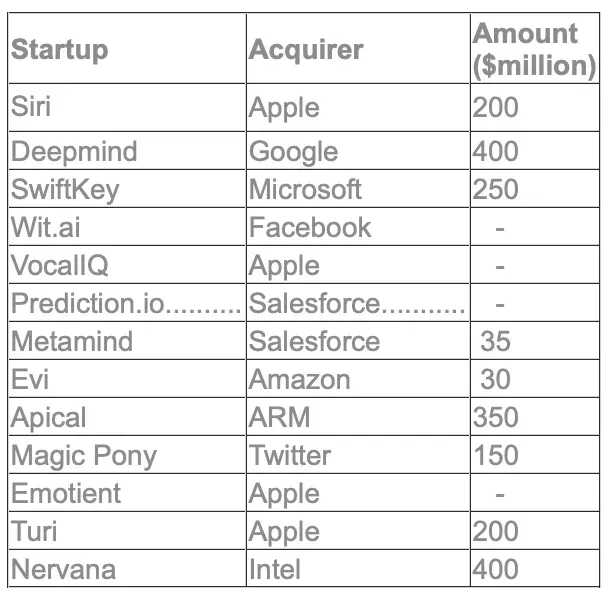
The market in AI is hot right now. So much so that in the last week alone, we have seen two acquisitions by large companies worth over $600million. Last week, Apple bought Turi (ex GraphLab), a company that creates and sells data science algorithms, or Data Science as a Service. It is headed by University of Washington professor Carlos Guestrin, and was acquired for $200million. Not only do Apple obtain the product, they acquire the talent as well, at least for a set number of years as stipulated in the contract. Then came Intel’s buy out of Nervana, a maker of deep learning chips, ASICs that give a 10X speedup over conventional hardware, such as GPUs and CPUs. This is an interesting play by Intel as it means that we will start to see this technology in future Intel products, which will help speed the AI revolution.
Google revealed a similar endeavour when they recently announced the TPU, again a hardware specific ASIC purpose built to optimize the deep learning algorithms used in almost all of their products including image classification, search, ads, mobile and spam filters. In fact, in the announcement, Google disclosed that they had been using TPU’s to power AlphaGo, the system that beat the world champion Go player, Lee Sodol, four matches to one. Google has also been using DeepMind’s algorithms to improve energy efficiency in their data centers by 40%, a huge savings, given that data centers now consume an ever increasing portion of the world’s energy. A recent talk by Deepmind’s cofounder Demis Hassibis at the MIT-Harvard collaborative Center for Brains, Minds, Machines (CBMM), outlines the company’s quest to uncover general artificial intelligence algorithms, or AGI.

So what does this tell us? Well, the field is certainly heating up, for one thing with all the AI acquisitions. You can also read about some of the other AI acquisitions in recent articles by CB Insights here and here. Based on all this activity, both research and commercial, many have speculated that we are at the beginning of an AI revolution. In fact, it has been labelled the fourth industrial revolution, or the intelligence revolution, by some, following steam, electricity, and computers. Check out this superb blog by Klaus Schwab the Founder and Executive Chairman of the World Economic Forum where he outlines the impact these technologies will have.
With revolution comes inevitable upheaval — social, economic and employment.
Whereas in the past, new jobs have always been created to replace those destroyed by new technology, this time will be different. If you’re actually replacing human intelligence, there really isn’t that much left for us to do in the way of work. This poses its own set of unique challenges. The good thing is that it frees us up to pursue whatever we’d like to do — the arts and sciences, outdoor pursuits, anything creative. But then how can we afford to cover the essentials — food, shelter, communications. Some kind of new economic system will surely be required, perhaps a guaranteed basic income. Such a system has been trialled in many places before and is currently in trial in several more — in all cases it has been found to work well with people free to create the lives they wish. Also, we will probably see a transition to a resource based economy, such as The Venus Project proposed by Jacque Fresco.
One thing for sure, we are going to see a lot of changes over the next twenty years, as the AI revolution takes hold, from self-driving cars, to personal assistants, to domestic carers, to AI doctors and lawyers. Both blue and white collar workers will be displaced, no one escapes as all jobs are eventually automated.
And of course the change will be exponential, so we will see it only accelerating. Take the purchase of Nervana by Intel, for example, which will bring deep learning technology to the masses, both in the business and consumer markets over the next few years. The good news is better healthcare, better decision-making, cleaner energy and an increasing number of scientific discoveries. The risks are economic and social upheaval if we don’t stay on top of these changes and manage them well.
